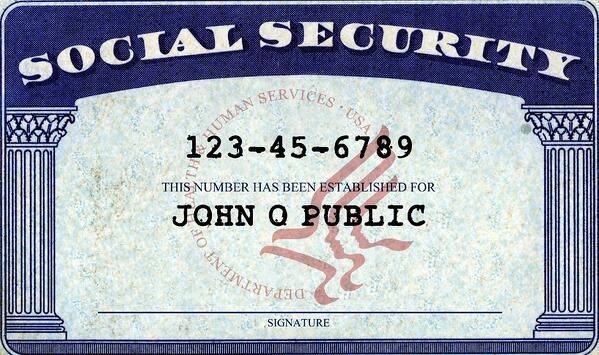If you had a time machine, what would you do?

|
Many of us are over-saving and under-living. The reality is that around half of today’s retirees have more savings than they will ever need - some even doubling their money over the course of their retirements. • Social Security is not going broke. • Inflation is not going to bankrupt you. • Medicare covers more than you realize. • Your savings may go further than you think. • You don’t need a million dollars to retire. Have FUN. You’ve earned it.

|

|

You need $1,000,000 to retire, right? Not in my experience. Many people are surprised how little money is needed monthly in order to afford a comfortable lifestyle once you retire.
I have done retirement budgeting with hundreds of people in the Sarasota area, and today I am going to review some of my conclusions.
Here are items (and approximate cost) that I see on almost every budget.
Assumptions:
| Budget Item | Cost |
| Mortgage | n/a |
| Property Taxes | $300/mo |
| Home Insurance | $200/mo |
| HOA Fees | n/a |
| Electricity | $250/mo |
| Water/Sewer/Garbage | $70/mo |
| Cell Phone | $100/mo |
| Cable/Internet | $200/mo |
| Pest Control | $50/mo |
| Lawn Service | $100/mo |
| Maintenance/Repair | $200/mo |
| Car Payment+Insurance | $500/mo |
| Gas | $100/mo |
| Auto Insurance | $150/mo |
| Groceries | $500/mo |
| Eating out | $400/mo |
| Clothing | $100/mo |
| Beauty/Barber | $150/mo |
| Vacations | $400/mo |
| Gifts/Tithes/Charity | $200/mo |
| Medicare Premium | $134/mo per person ($268) |
| Medicare Supplement | $200/mo per person |
| Dental | $50/mo |
| Miscellaneous | $200/mo |
| Total | $4700/mo |
Surprised? Most people are.
I know some of you are going to fight me on those numbers, but hopefully you get the idea.
If you don’t have a mortgage, almost everyone falls into the category of needing $3000-$6000 a month once they are retired. And this pays for a nice life! You’re not staying at home with the air conditioner set to 80 degrees. You are not eating beans out of can for dinner. You are leading a full and active retired life.
Of course, your situation may be different. If you still have a mortgage, add that to the total. Maybe you don’t have cable. Maybe you spend more money on eating out.
The point I’m trying to make is this: Most Baby Boomers nearing retirement have no budget and no real idea of what their expenses will be once they retire. I hope this gives you a better handle on the numbers.
Quick note- Remember that it is important to have an emergency fund. Your roof may need replaced, your air conditioner will break down, and dental work can be ridiculously expensive. These expenses are not included in this budget.
Let’s speed-round a few points about retirement and money that you absolutely need to know so you can retire with confidence.
#1 You don’t need $1 million to retire. I know I say this constantly. But I’m going to say it again. Most people can retire comfortably with far less than a million bucks in the bank.
Glad we got that one out of the way up front. Here are a few more.
#2 Social security is more than you think. The average social security check is around $1500 a month. So if you are married, that $3000 could cover more than half of your living expenses. In fact, I’ve met many frugal people who are living a very full life on $3000/mo.
#3 It can be fun reducing your expenses. Seriously. Look for restaurant specials. There are all kinds of ways to save money on clothing, furniture, and food. Be creative. Make a game out of it. You never need to pay retail again. 🙂
#4 Budgeting is a lifelong habit. Many of you with modest incomes have adjusted to living below your means over the years. People like you often have a much easier transition into retirement.
I’ve found six-figure earners often have a much more difficult time adjusting. Most people who bring home $10,000 a month are used to living on $10,000 a month. You would need a huge amount of savings to continue that kind of lifestyle.
So now it is time for you to make your retirement budget. I would encourage you to go through the same exercise I just took you through and use your real numbers.
Making a budget for retirement can be incredibly empowering, and for most people, it gives them relief. Relief knowing that maybe you don’t need to worry so much about money. And if your budget needs a little trimming, at least you know.
Be Blessed,
Dave

Do you think you’ve learned stuff from my weekly emails? This week I’m going to test your memory and your smarts. Only of few of you will know all the answers (let me know if you get 100%). Are you up to the challenge? Good luck.
Note: I tried to put the answers under each question but I don’t want you to cheat. So under each question, you will see a string of letters like this: abccdba. The THIRD letter is the correct answer (“c” in this example).
1. What is a mutual fund?
A. An individual stock.
B. A vehicle that contains lots of stocks and bonds all in one place.
C. A way beneficiaries get around the law to change who gets the money.
D. A stock that you “mutually” agree on with a financial advisor.
Answer: babcbdab
2. What is the average return of the stock market over the past 20, 50, and 100 years? (They are all around the same number)
A. 10%
B. 6%
C. 4%
D. 2%
Ebadcba
3. What year was the last stock market crash?
A. 2001
B. 2020
C. 1762
D. 2008
Ccdbcda
4. Once on Medicare, what is the maximum out-of-pocket cost you could pay for medical expenses in any given year?
A. $30,000,000
B. $10,500
C. $6,700
D. There is no limit.
Ddcdabca
5. How much money should you save in an “emergency fund” of cash at the bank?
A. One month’s expenses
B. One year of expenses
C. Three months of expenses
D. Six months of expenses
Abdcdba
6. The average lifespan of a healthy 65-year-old man is:
A. 85
B. 80
C. 90
D. 110
Dbadbadba
7. Which investment is the most volatile?
A. A single bond
B. A single stock
C. A bond mutual fund
D. A stock mutual fund
Adbdatry
8. How do taxes work on Roth IRA’s?
A. You get a tax deduction when you add money and then a tax deduction when you take the money out.
B. You don’t get a tax break upfront and you have to pay taxes when you take the money out.
C. You don’t get a tax break but you can take the money out tax-free.
D. You get a tax deduction but when you take the money out you have to pay income taxes.
Aacabda
9. How do taxes work on 401k’s and IRA’s?
A. You get a tax deduction when you add money and then a tax deduction when you take the money out.
B. You don’t get a tax break. You have to pay taxes when you take the money out.
C. You don’t get a tax break but you can take the money out tax-free.
D. You get a tax deduction upfront but when you take the money out you have to pay income taxes.
Ddddecba
10. When you have to start taking money from your IRA?
Cacdadca
11. What is the most important variable for your retirement finances?
A. The amount in your 401k
B. Whether or not you have a mortgage
C. Have much you have in the bank
D. Your budget
Dcdadcz
12. How much money can you take with you when you die?
Ddddacbc
13. If Mr. Smith is getting $2000/mo from Social Security and Mrs. Smith is getting $1400, what happens to Mrs. Smith’s benefit if Mr. Smith dies?
A. She starts getting $2000/mo
B. She keeps getting $1400/mo
C. She gets to add them and get $3400/mo
Adacads
14. Day trading is a good idea if…
A. You have time to pay attention to the markets.
B. You have the expertise.
C. Never. It’s almost always a loser in the long term
D. You have fancy software you bought off the internet for $1500.
Adcdaba
15. If you invested $100,000 in the stock market from 1979 to 1999, what would it have grown to?
A. $223,500
B. $150,700
C. $1,840,000
D. $940,300
abcdea
16. Does your Social Security ever increase after you take it?
A. No.
B. Yes. It grows by 8% per year.
C. Yes. It grows by 2% per year.
D. Yes. It increases at the rate of inflation.
aadcedjg
17. If you invest in a diversified portfolio of stocks and bonds with at least half of the money in stocks- what is a reasonable amount of money to take from the account each year?
Dbabdacz
18. What percentage of the country die with more money than ever?
Cdcbea
19. On average, how much money do 75-year-olds spend, compared to those age 60?
A. 40% less
B. 20% more
C. 10% less
D. 30% more
Bbabdadlkj
20. What is my favorite ice cream flavor?
A. Vanilla
B. Chocolate
C. Mint Chocolate Chip
D. Cookie Dough
Dbbdbadba
How did you do? As for myself, I got 100%, but I made the quiz.
Be Blessed,
Dave

|